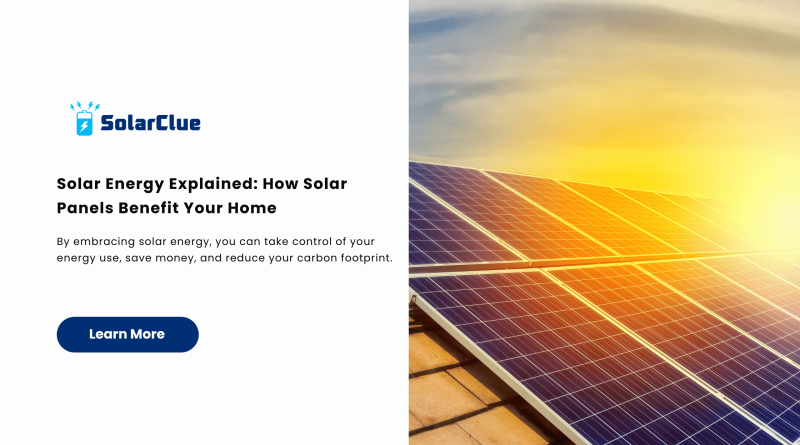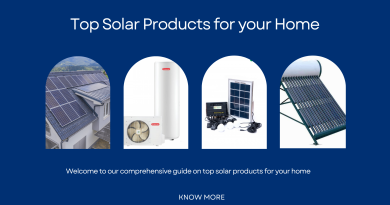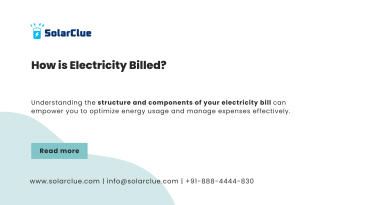Solar Energy Explained: How Solar Panels Benefit Your Home
Have you ever wondered why so many people are installing solar panels these days? It’s not just a trend—it’s a practical solution to rising electricity costs and environmental concerns. By embracing solar energy, you can take control of your energy use, save money, and reduce your carbon footprint. In this guide, we’ll break down everything you need to know about solar panels for your home, including how they work, how much they cost, and why they’re worth considering.
Table of Contents
- 1 What Is Solar Energy and How Does It Work?
- 2 Key Benefits of Installing Solar Panels for Your Home
- 3 What Does a Solar System for Home Cost?
- 4 Choosing the Right Solar Panels for Your Home
- 5 Solar Panel Durability and Lifespan
- 6 How to Install a Solar Power System for Your Home
- 7 Is Solar Energy Worth It for Your Home?
- 8 Common Myths About Solar Panels and Solar Energy
- 9 Conclusion
- 10 FAQs
- 10.1 1. How much does a solar system for home price typically cost?
- 10.2 2. What are the maintenance requirements for solar panels?
- 10.3 3. How much can I save on my electricity bill with solar energy?
- 10.4 4. Are solar panels a good investment for the long term?
- 10.5 5. What is the difference between grid-tied and off-grid solar systems?
What Is Solar Energy and How Does It Work?
Let’s start with the basics. Solar energy comes from the sun’s rays, and with the right system, you can convert those rays into electricity. Here’s how it works: solar panels absorb sunlight and create direct current (DC) electricity. Since your home runs on alternating current (AC), an inverter steps in to convert DC to AC so you can power your appliances.
Here are the key parts of a solar power system:
1. Solar panels: They do the heavy lifting by capturing sunlight.
2. Inverter: This is the brain of the system, converting electricity to a usable form.
3. Battery storage (optional): If you want to save energy for cloudy days or nighttime, this is essential.
Some systems are connected to the grid, meaning you can sell excess electricity back to your utility company (a concept called net metering), while others are completely off-grid.
Key Benefits of Installing Solar Panels for Your Home
Lower Energy Bills and Cost Savings
Imagine slashing your monthly electricity bill or even eliminating it altogether! By installing solar panels, you generate your own power and rely less on expensive grid electricity. Depending on your energy needs and local rates, you could save thousands of dollars over time. Plus, with programs like net metering, any extra energy you produce can turn into credits on your bill.
Environmental Benefits of Solar Energy
Using solar energy for home isn’t just good for your wallet; it’s good for the planet too. Traditional electricity production releases tons of carbon dioxide, but solar power is clean and renewable. Every kilowatt-hour of solar energy you use helps cut down on harmful emissions and supports a healthier environment.
Increased Property Value
Did you know that homes with solar power systems often sell for more? Potential buyers are drawn to the idea of lower energy bills and sustainable living. In fact, adding solar panels can make your home more appealing and boost its resale value.
What Does a Solar System for Home Cost?
Now you’re probably wondering, “How much will this cost me?” The price of a solar system for home depends on a few factors, like the system size, type of solar panels, and installation complexity. On average, you’re looking at anywhere between $10,000 and $30,000 before incentives. But here’s the good news: there are tax credits, rebates, and other programs that can significantly lower the solar panel price.
Factors Affecting Solar Panel Price
1. System size: Bigger systems generate more power but come with a higher upfront cost.
2. Type of solar panels: Monocrystalline panels are efficient but more expensive, while polycrystalline panels are budget-friendly.
3. Installation factors: Things like roof angle and shading can impact installation costs.
Though the initial investment may seem steep, the long-term savings make it worthwhile for many homeowners.
Choosing the Right Solar Panels for Your Home
Types of Solar Panels
Not all solar panels are created equal. Here’s a quick overview of your options:
1. Monocrystalline panels: High efficiency and ideal for homes with limited roof space.
2. Polycrystalline panels: More affordable, but slightly less efficient.
3. Thin-film panels: Flexible and lightweight, perfect for non-traditional setups.
The best type for you depends on your budget, energy goals, and roof structure.
Solar Panel Durability and Lifespan
The great thing about solar panels for home use is their longevity. Most panels last 25 to 30 years and are built to withstand harsh weather conditions. With minimal maintenance (just occasional cleaning and inspections), they’ll keep powering your home for decades.
How to Install a Solar Power System for Your Home
Planning and Site Assessment
Before installation, a professional will check your roof’s suitability. Factors like orientation, available space, and shading affect how efficiently your system will generate electricity. Ideally, solar systems work best on south-facing, unshaded roofs.
Permits and Approvals
Installing solar panels usually requires local permits and utility approvals. Don’t worry—your installer will handle this process to ensure everything meets building codes and regulations.
Installation Process
The actual installation involves mounting the panels, connecting the inverter, and wiring everything together. Once complete, the system is tested and inspected to ensure it’s functioning properly.
Is Solar Energy Worth It for Your Home?
Absolutely! While the upfront cost may be intimidating, solar power is a long-term investment that pays off in energy savings and increased home value. Many homeowners recoup their costs within 5 to 10 years. Plus, you’re doing your part to reduce greenhouse gas emissions.
Common Myths About Solar Panels and Solar Energy
Myth 1: Solar Panels Only Work in Sunny Climates
Think solar panels won’t work on cloudy days? Think again! Modern systems are designed to generate electricity even in low sunlight conditions.
Myth 2: Solar Panels Are Too Expensive
Thanks to incentives and financing options, solar energy is more affordable than ever. Over time, the savings on your energy bills can far exceed the initial cost.
Myth 3: Solar Panels Require Constant Maintenance
In reality, solar panels for home use are low-maintenance. A quick cleaning every now and then, plus routine inspections, is usually all that’s needed.
Solar Incentives and Financing Options
To encourage the use of solar energy for home, many governments offer tax credits, rebates, and other incentives. Additionally, financing options like solar loans and leases make it easier for homeowners to afford installation.
Conclusion
Making the switch to solar panels for your home is one of the smartest investments you can make. You’ll save money, boost your property’s value, and help protect the planet. With all the incentives and financing options available today, there’s no better time to embrace solar energy.
FAQs
1. How much does a solar system for home price typically cost?
The price can range between $10,000 and $30,000 before incentives, depending on system size and type of panels.
2. What are the maintenance requirements for solar panels?
Regular cleaning and occasional inspections are recommended to maintain optimal performance.
3. How much can I save on my electricity bill with solar energy?
Savings vary based on system size, location, and energy consumption but can amount to thousands over the system’s lifespan.
4. Are solar panels a good investment for the long term?
Yes, most homeowners see a return on investment within 5 to 10 years, along with increased property value.
5. What is the difference between grid-tied and off-grid solar systems?
Grid-tied systems remain connected to the utility grid, allowing you to sell excess energy, while off-grid systems rely solely on stored energy.
Need help? Your answers are just a click away on our website!




